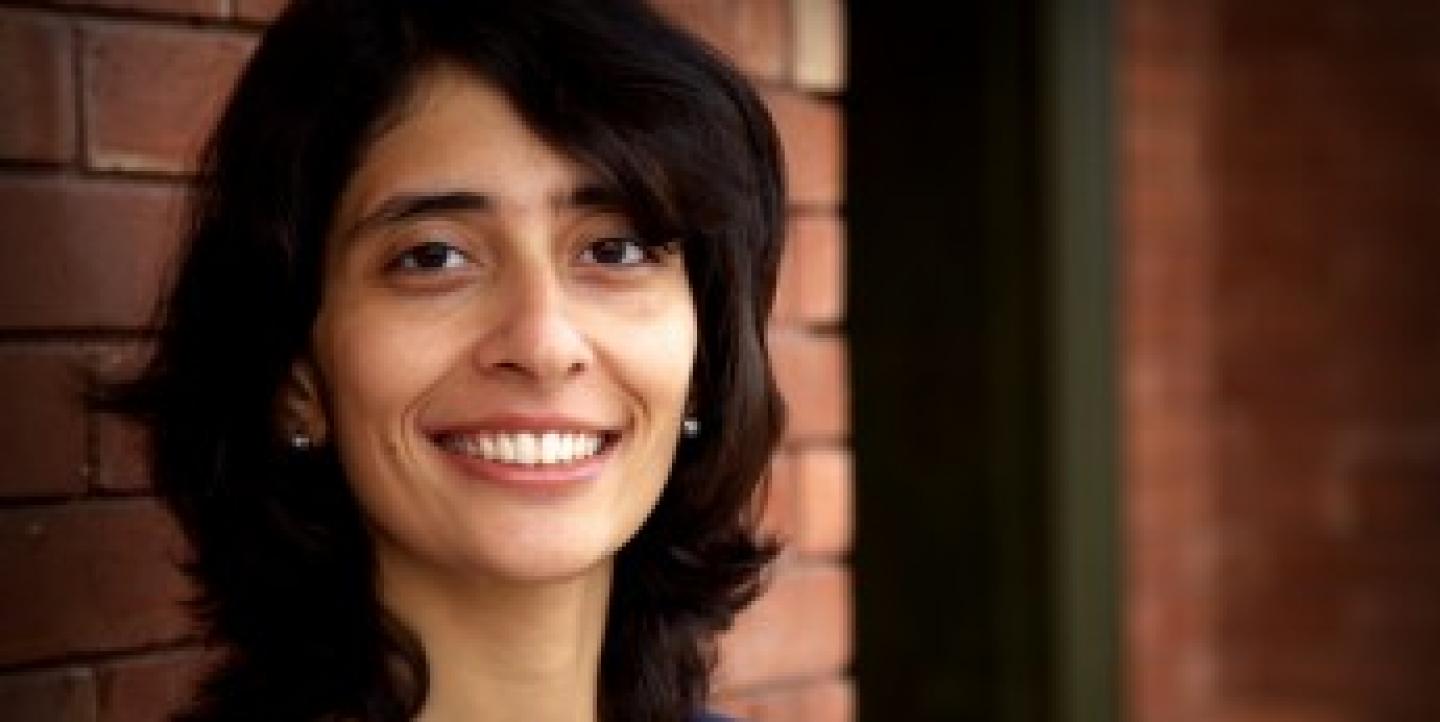Media development consultant and ICFJ Knight International Journalism Fellow Rahma Muhammad Mian is creating a citizen-engagement lab in Pakistan to support data-driven media projects. She is also building networks to improve collaboration between news technology and open government communities across Pakistan.
Mian talked with IJNet about the state of data journalism and open data in Pakistan.
IJNet: What is your view of the current news media landscape in Pakistan?
Mian: After the post-liberalization television boom of the last decade, TV news has plateaued in the past few years. The quality of news reporting on TV is quite poor, and the focus is entirely on sensational content. A big reason is that in Pakistan, TV channels earn money via advertising only and not through subscriptions. This means the bottom line is how many people watch something--and not why--as ratings only measure how many people watch what, when. This results in controversial and sensational programming. The quest for eyeballs, higher ratings and hence more money has pushed any focus on journalistic standards completely off the table.
Newspapers, on the other hand, can still be relied on for detailed informative reporting and are branching out to having more features, better design and a web presence.
The digital news landscape is growing and hopefully evolving [beyond just] click-baiting and social media sharing to doing focused, substantial digital and data journalism.
Media ownership and for-profit media are also pressing issues that journalists are grappling with in Pakistan as [they do] across the world. For-profit media are often prone to conflicts of interest, and they do not always support the public-interest component of journalism. A growing number of technology-media organizations around the world creating alternate models of sustainability are being looked at with interest by young journalists in Pakistan. Hopefully soon, there can be more independent and sustainable web-only news media organizations here.
IJNet: How is Pakistan’s media landscape changing?
Mian: A lot of people are switching to the Internet to get their news now. Twitter particularly is a popular platform, as a lot of journalists (reporters, editors, talk show hosts) are using it and sharing opinion, news and exclusives. Alongside journalists, there are executives, publishers and proprietors who are also setting up accounts and beginning to take notice. And it is not just the news fraternity that is using the platform but also politicians and the military, which recently has used Twitter to release statements. The news now sometimes starts online.
As a result, the journalists who are not online are paying attention to the Internet and trying to build their own digital presence. Editors are beginning to notice the importance of the platform and of technology to report better. There is now an increased appetite for using technology to create impactful journalism.
IJNet: In what ways are the news media already taking advantage of new technology in order to get citizens the information they need?
Mian: There has been a focus on interaction, and hence on social media, on sharing, comments and [driving traffic through links]. During big events, there are news updates [delivered via social media]. During opposition marches in the capital this year, The Express Tribune used Google Maps to track the journey of the two separate marches that left for Islamabad from Lahore.
There are also news apps for mobile phones and SMS update services that the big news media organizations are offering. During elections or other key political events there is extensive coverage, sometimes using data.
IJNet: How could the media make better use technology in order to meet the information needs of citizens?
Mian: By making a concerted effort at gathering data, analyzing it and sharing it. By coming up with better ways of organizing and sharing this information on the Internet. And by making datasets available online, opening their data for activists, researchers and entrepreneurs.
IJNet: What kind of training would benefit journalists in Pakistan?
Mian: Training on the basic function of journalism, on digital literacy, ethics, reporting better on human rights issues, using technology to research and report better.
IJNet: What most excites you about working on media innovation there?
Mian: Making closed government data public. It is public to start off with, but as with most governments in the developing world, the concept of openness is a sensitive one.
IJNet: As a Knight Fellow, you plan to form partnerships with organizations that share your goal of promoting the use of open data. What are looking for in potential partners?
Mian: That they have a strong commitment to increasing citizens’ access to information, improving quality of lives and work toward accountability and openness of governments.
Global media innovation content related to the projects and partners of the Knight Fellowships on IJNet is supported by the John S. and James L. Knight Foundation and edited by Jennifer Dorroh.


